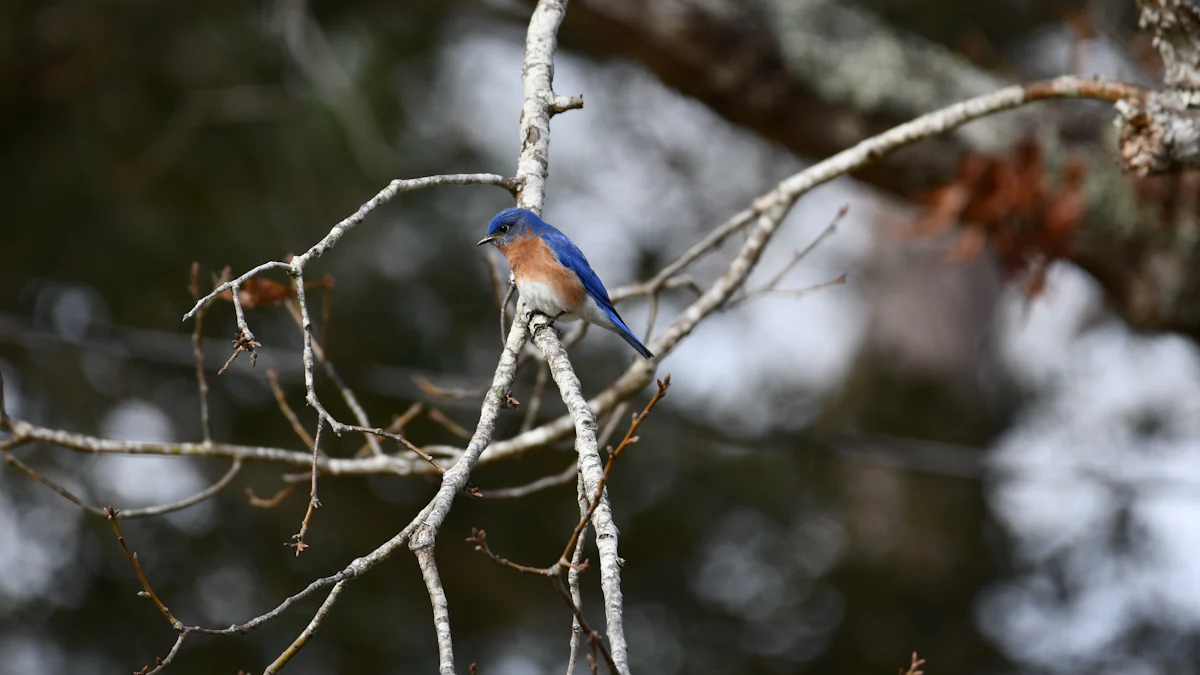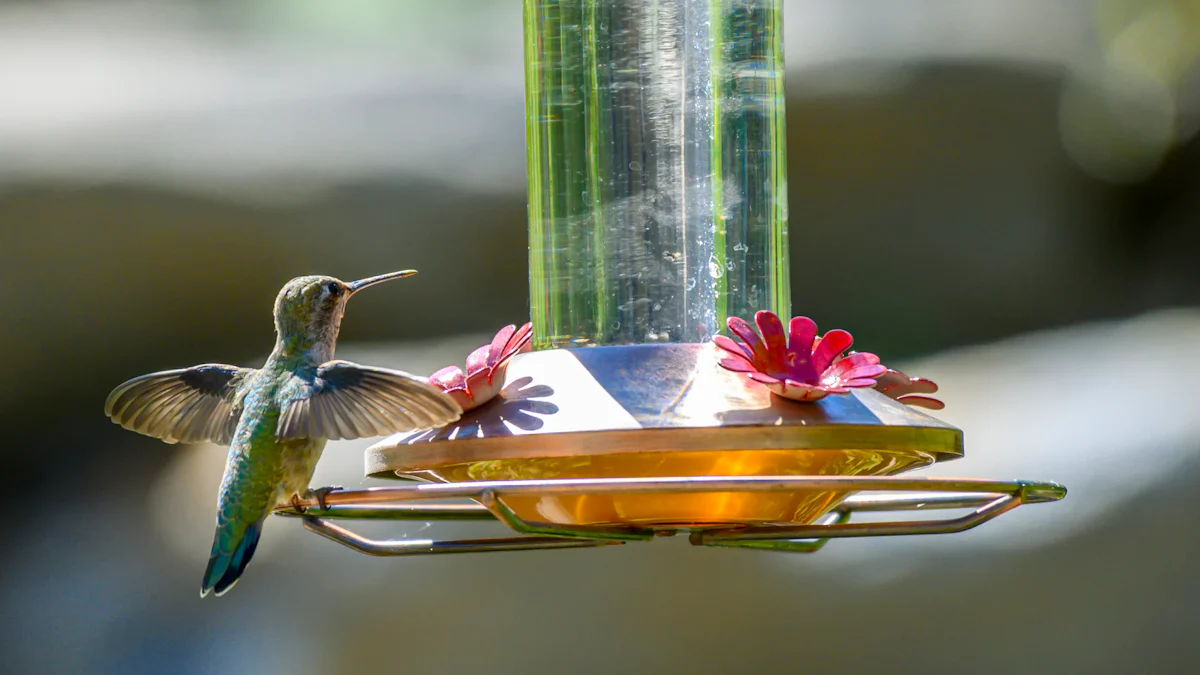
Dried mealworms pack a powerful punch of nutrition, making them a favorite among animal enthusiasts. With an impressive 50% protein content, they provide the essential building blocks for muscle growth and repair. These tiny treats brim with healthy fats, delivering a steady energy boost to keep animals active and thriving. Loaded with vital nutrients like iron, calcium, and zinc, dried mealworms support strong bones, robust immune systems, and overall vitality. Their balanced composition even aids digestion, ensuring animals absorb maximum benefits. Whether for pets or wildlife, dried mealworms bulk offers a convenient and nutrient-rich dietary option.
Key Takeaways
- Dried mealworms are a powerhouse of nutrition, containing approximately 50% protein, essential for muscle growth and repair in animals.
- The healthy fats in dried mealworms provide a concentrated energy source, supporting active lifestyles and maintaining healthy skin and coats.
- Packed with vital vitamins and minerals like iron, calcium, and zinc, dried mealworms promote strong bones, robust immune systems, and overall vitality.
- Incorporating dried mealworms into the diets of pets, farm animals, and wildlife can enhance their nutrition and well-being.
- Feeding methods such as scattering for birds or mixing into pet food can mimic natural behaviors and ensure animals receive the benefits of mealworms.
- Proper storage and gradual introduction of dried mealworms are crucial to prevent contamination and digestive issues, ensuring a safe feeding experience.
- Dried mealworms offer a sustainable protein alternative, making them an eco-friendly choice for animal nutrition.
Nutritional Profile of Dried Mealworms

High Protein Content
Dried mealworms boast an impressive protein content, making them a powerhouse for animal nutrition. With approximately 50% protein, they provide the essential building blocks for muscle development and tissue repair. This high-quality protein contains a rich amino acid profile that aligns closely with the dietary needs of many animals, especially birds. According to research published in PLOS One, insect protein, including mealworms, delivers amino acids that support growth, feather health, and overall vitality in birds. For animals requiring a protein boost, dried mealworms bulk serves as a reliable and nutrient-dense option.
Healthy Fats and Energy
The healthy fats in dried mealworms act as a concentrated energy source, fueling animals for their daily activities. These fats are particularly beneficial for species with high energy demands, such as birds during migration or pets with active lifestyles. The fats also contribute to maintaining healthy skin and shiny coats in mammals. Unlike some fatty foods, mealworms offer a balanced fat composition that supports sustained energy release without causing digestive issues. Their digestibility ensures animals can efficiently convert these fats into usable energy, keeping them lively and thriving.
Essential Vitamins and Minerals
Dried mealworms are packed with essential vitamins and minerals that promote overall well-being. They contain iron, which supports oxygen transport in the blood, and calcium, which strengthens bones and teeth. Zinc plays a vital role in immune function, while magnesium aids in muscle and nerve health. Additionally, mealworms provide B vitamins, which enhance metabolic processes and energy production. These nutrients work together to ensure animals stay healthy and resilient. For pet owners and wildlife enthusiasts, incorporating dried mealworms bulk into feeding routines offers a simple way to deliver these critical nutrients.
Specific Benefits for Different Animals

Birds
Dried mealworms provide birds with a protein-packed snack that fuels their active lifestyles. The high protein content supports feather growth and repair, ensuring vibrant plumage and improved flight capabilities. Birds also benefit from the healthy fats in mealworms, which supply the energy needed for long migrations or daily foraging. Essential minerals like calcium strengthen eggshells, making dried mealworms an excellent choice for breeding birds.
According to avian experts, incorporating dried mealworms into a bird’s diet can mimic natural foraging behaviors, keeping them mentally stimulated and physically healthy.
For backyard bird enthusiasts, offering dried mealworms bulk in feeders attracts a variety of species, from bluebirds to robins, creating a lively and colorful environment.
Dogs
Dogs thrive on the nutritional boost provided by dried mealworms. The high-quality protein aids in muscle development and repair, making it ideal for active or working dogs. Healthy fats contribute to a shiny coat and supple skin, while essential vitamins and minerals enhance overall vitality. Mealworms are also easily digestible, reducing the risk of stomach upset in sensitive breeds.
Pet owners looking for sustainable protein alternatives often turn to dried mealworms. Compared to traditional protein sources like beef or chicken, mealworms offer similar benefits with a smaller environmental footprint. Adding dried mealworms bulk to a dog’s diet can serve as a nutritious treat or supplement, ensuring they stay energetic and happy.
Reptiles and Amphibians
Reptiles and amphibians benefit immensely from the nutrient-rich profile of dried mealworms. These animals require a diet high in protein and fat to support their slow metabolism and unique energy needs. Mealworms deliver these nutrients in a compact, easy-to-digest form. Calcium in mealworms strengthens bones and prevents metabolic bone disease, a common issue in reptiles.
Herpetologists recommend dried mealworms as a staple food for species like geckos, frogs, and turtles due to their balanced nutritional composition.
Feeding dried mealworms bulk to reptiles and amphibians simplifies meal preparation for pet owners while ensuring their pets receive essential nutrients for growth and health.
Other Animals
Dried mealworms provide a nutritional boost to a wide range of animals beyond the usual suspects. Small mammals, such as hamsters and hedgehogs, thrive on the protein-packed goodness of these tiny treats. The high protein content supports muscle development and keeps these furry companions active and healthy. Their healthy fats also contribute to maintaining a shiny coat and balanced energy levels.
Farm animals, like chickens and ducks, benefit significantly from dried mealworms. Adding mealworms to their diet enhances egg production and improves the quality of eggshells due to the calcium content. Studies suggest that replacing up to 10% of regular chicken feed with dried mealworms leads to healthier and more productive poultry. Farmers often use dried mealworms bulk as a cost-effective way to boost their flock’s nutrition.
Wildlife enthusiasts also turn to dried mealworms to support local ecosystems. Squirrels, chipmunks, and even fish enjoy the nutrient-rich snack. These animals gain essential vitamins and minerals, such as zinc and magnesium, which promote overall vitality. Offering dried mealworms in outdoor feeders attracts a variety of wildlife, creating a lively and engaging environment for nature lovers.
"Dried mealworms are a versatile food source that bridges the gap between pets, farm animals, and wildlife," say animal nutrition experts. Their adaptability and nutrient density make them a valuable addition to any feeding routine.
Whether for small mammals, farm animals, or wild creatures, dried mealworms bulk delivers a convenient and nutritious solution for diverse dietary needs.
How to Feed Dried Mealworms Bulk
Practical Feeding Methods
Feeding dried mealworms can be both simple and enjoyable. For birds, scattering mealworms on the ground encourages natural foraging behaviors. This method keeps them physically active and mentally engaged, mimicking their wild instincts. Chickens, for instance, love pecking and scratching at the ground to find these tasty treats. During molting season, when chickens need extra protein for feather growth, this approach becomes even more beneficial.
For pets like dogs or reptiles, mealworms can be mixed into their regular food. Reptiles, such as geckos or turtles, thrive on the protein and calcium found in mealworms. Pet owners can also hand-feed mealworms to create a bonding experience. Wildlife enthusiasts often place dried mealworms in feeders to attract birds, squirrels, or chipmunks, turning their backyard into a lively ecosystem.
Portion Guidelines
Portion control ensures animals receive the right amount of nutrition without overfeeding. For birds, a handful of dried mealworms per day suffices for small flocks. Chickens, especially during molting, may require slightly more to meet their protein needs. Dogs can enjoy mealworms as a treat, with portions adjusted based on their size and activity level. Small mammals, like hamsters or hedgehogs, should receive only a few mealworms at a time to avoid excessive fat intake.
Reptiles and amphibians benefit from mealworms as part of a balanced diet. Feeding them 2-3 mealworms per session, depending on their size, ensures they get the nutrients they need without overloading their system. Always monitor the animal’s response to mealworms and adjust portions accordingly.
Storage and Preparation Tips
Proper storage keeps dried mealworms fresh and nutritious. Store them in an airtight container in a cool, dry place to prevent spoilage. For long-term storage, refrigeration or freezing extends their shelf life while maintaining their quality. Always check for signs of mold or pests before feeding.
Preparation is straightforward. For smaller animals, breaking mealworms into smaller pieces makes them easier to consume. Soaking mealworms in water softens them, which is especially helpful for young or older animals with chewing difficulties. This method also adds hydration to their diet, a bonus for species that require extra moisture.
"Freshness is key when feeding dried mealworms," say animal nutrition experts. Proper storage and preparation ensure animals receive the maximum nutritional benefits.
By following these practical methods, portion guidelines, and storage tips, feeding dried mealworms bulk becomes a hassle-free and rewarding experience for both animals and their caregivers.
Precautions and Considerations
Potential Risks
While dried mealworms offer numerous benefits, certain risks require attention. Overfeeding can lead to imbalanced diets, especially for animals with specific nutritional needs. For instance, feeding dried mealworms as the sole food source may deprive animals of other essential nutrients. Experts recommend limiting mealworms to no more than 30% of an animal’s daily intake to maintain a balanced diet.
Contamination poses another concern. Improper storage can expose mealworms to mold, pests, or bacteria, which may harm animals. Storing dried mealworms in airtight containers in a cool, dry place helps preserve their freshness and nutritional value. Refrigeration or freezing extends their shelf life further, ensuring they remain safe for consumption.
Allergic reactions, though rare, can occur in some animals. Pet owners should introduce dried mealworms gradually and monitor their pets for any adverse reactions. If an animal shows signs of discomfort, such as vomiting or lethargy, discontinue feeding and consult a veterinarian immediately.
Best Practices
To maximize the benefits of dried mealworms while minimizing risks, follow these best practices:
-
Introduce Gradually: Start with small portions to allow animals to adjust to the new food. Gradual introduction reduces the risk of digestive upset and helps gauge their reaction.
-
Maintain Variety: Use dried mealworms as a supplement rather than a primary food source. Combine them with other foods to provide a well-rounded diet. For example, mix mealworms with seeds for birds or blend them into regular pet food for dogs.
-
Ensure Proper Storage: Keep dried mealworms in airtight containers to prevent contamination. Store them in a cool, dry place, away from direct sunlight. For long-term storage, refrigeration or freezing is highly effective.
-
Soak for Softness: Soaking dried mealworms in water makes them softer and easier to eat, especially for young or older animals. This method also adds hydration, which benefits species requiring extra moisture.
-
Source Responsibly: Purchase dried mealworms from trusted suppliers to ensure quality and safety. Reputable brands prioritize proper processing and packaging, reducing the risk of contamination.
"Feeding dried mealworms responsibly enhances their nutritional benefits while keeping animals safe and healthy," advise animal nutrition experts.
By adhering to these precautions and best practices, caregivers can confidently incorporate dried mealworms into their animals’ diets. This thoughtful approach ensures a rewarding and enriching feeding experience for both animals and their owners.
Dried mealworms stand out as a nutritious and versatile food source for animals of all kinds. Their high protein content supports muscle growth, while healthy fats provide sustained energy. Packed with essential nutrients like calcium and zinc, they enhance overall health and vitality. By following proper feeding methods and portion guidelines, caregivers can ensure animals reap the maximum benefits. Dried mealworms bulk offers a cost-effective way to enrich diets, making them an excellent choice for pets, farm animals, and wildlife. Incorporating them into feeding routines promotes both animal well-being and environmental sustainability.


